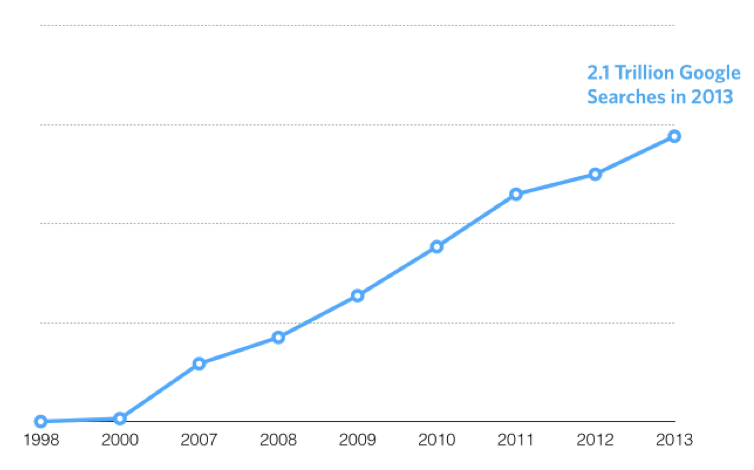For years, CPA marketing evolved only gradually, moving forward by the force of inertia. Firms knew what worked, and so they dutifully did what they needed to do. Typically, that meant cultivating a referral network in the community (particularly bankers and lawyers), serving in volunteer capacities (such as on non-profit boards), and sponsoring a charity golf outing here and there, with the occasional speaking engagement thrown in.
For a while, this was enough. But powerful forces are reshaping the marketplace, and CPA marketing must adapt to keep up. What are these changes, and how can firms advance their marketing practices to get ahead? Let’s take a closer look.
Demographics are Destiny
Baby boomers are retiring in vast numbers. The high-level professionals most obviously positioned to take their places, the “Gen-Xers,” are a smaller generation – resulting in a strikingly smaller talent pipeline for leadership. This dilemma, coupled with the economic hardships of recent years, has led to a wave of mergers, leading to confused brand identities and turbulent cultures.
But that’s not all. Add to this potent mix the emergence of millennials – many of which are impatient with the rate of change in areas like technology adoption and service models. These rising professionals have grown up in an online world, and they have a very different set of expectations and behaviors than those who came before. Simply put, they look for products and services differently.
It’s important to note that millennials – and older professionals who have grown accustomed to the new marketplace – expect instant answers to their questions and transparency in your language and services. If they don’t get those answers, they’re only too happy to move on to a competitor.
The March of Technology
Technology has changed the landscape of business, collapsing geography and introducing new competition from around the country and even the world. By necessity, local firms must turn their attention to their wider regions, regional firms must look nationally, and national firms must reckon with global competition.
The Internet has made knowledge fundamentally available in a way that it simply wasn’t before. Today, many professional functions that were once performed by humans are automated. This has led to the emergence of new, technology-driven competitors – and it means new skills are required to utilize technology effectively.
In CPA marketing, it is now possible to automate marketing functions, and measure and track more of the business development function. In a world where Google searches are among the most common sources of information, these technologies can make a dramatic impact on growth. Consider the rise in Google searches over the last decade or so:

The Emerging Science of Professional Services Marketing
Technology has made tracking and testing possible – but it’s not enough to completely reorient your professional services marketing practice on its own. You also need a new way of thinking about and understanding marketing itself.
The last decades have seen epochal progress in our understanding of human behavior. Cognitive research such as that conducted by Dan Ariely has unlocked revolutionary insights on how human beings make decisions – insights with massive implications for marketers.
The scientific advances haven’t just been confined to general cognitive research, either. The most effective marketers are taking on a scientific rather than aesthetic approach, and we’re seeing more and more rigorous research on professional services buyers, high growth firms, the development of high visibility experts, and branding.
The result of these coinciding transformations is nothing less than the emergence of a new science of professional services marketing.
What Do You Need to Do to Compete?
What does all of this change mean for CPA firms who want to grow? In short, there are five key steps that every firm must make in its CPA marketing.
1. Focus to Grow
The changes we’ve been discussing favor the growth of specialists who can serve a market anywhere. In fact, our research shows that high-growth firms are three times more likely to be highly specialized – it’s one of the most consistent qualities of both high-growth and high-visibility firms.
It’s important to remember that specialization can take many forms. You might focus on specific markets, specific issues, or delivering a particular business model. Whatever approach you take, the point is that generalists and diverse firms with no clear focus do not have a competitive advantage.
2. Become One Firm
Firms with siloed functions, distinct cultures, and different brands in different locations are at a significant disadvantage. They have to juggle confusing and sometimes inconsistent brands, and whole service areas may get lost in the fray.
In this marketplace, the edge goes to firms with a unified brand – the ones that can easily communicate with clients across industries and geographies, showing them exactly who they are and what they do.
3. Making Your Expertise Visible
At the end of the day, your clients are buying your expertise – and nothing says expertise like a nationally known expert. High-visibility experts not only boost your credibility but also draw more leads and allow you to command higher rates.
Developing strategies for cultivating experts who can grow visibility and support the firm’s brand are important. These people are the new rainmakers…only better.
SEE ALSO: 12 Marketing Techniques to Increase Your Firm’s Visibility
4. Be Found Online
Firms’ online presences are assuming a greater role in the selection process for professional services buyers. This is true not only in the later stages of the buying process, as clients search for a specific service, but also toward the beginning, as they educate themselves about an issue.
In addition to educating themselves, clients check you out through your website – in fact, it’s the simple most common way people learn about you. It’s an important first impression, too. 50% of referrals get ruled out before ever having a conversation with a prospective client, and many of those rulings-out are on account of a firm’s website.
Just as your site has become more important, so too has your social media presence. Online marketing isn’t any one strategy, but a complex of interconnected practices. By using them effectively, you will position yourself to succeed.
5. Automate to Cope
Pulling all of the pieces of a successful online strategy together is a lot of work. The good news is that there are many marketing automation resources available to help you with research, tracking, and the execution of campaigns. This needs to be a part of your plans going forward.
The Resources to Make Change a Reality
No strategic insight will make a difference unless the change in question is implemented. So what do you need to do to move forward?
- Resources. First, you need to allocate adequate resources to your marketing efforts. That doesn’t necessarily mean a larger budget, but one spent differently. You’ll need to place a greater focus on online efforts and educational content – and less on sponsorships and traditional advertising and entertainment.
- Time. Transformation doesn’t happen immediately. You’ll need to invest enough time for your new approach to make an impact. Have patience for at least a year. After twelve months of concentrated effort, the average firm sees a striking difference:
- Talent. High growth firms have more talent devoted to marketing and business development, with one marketing employee to every 54 full-time employees. This makes sense — to be truly effective, a department will need to draw on skills ranging from web design to search engine optimization to writing to multimedia editing, and many more. If you don’t have a particular skillset on board, you’ll need a partner who brings what you are missing.
CPA marketing is never going to be simple. But it’s increasingly clear that there is a science to it, and firms that are paying attention can reap the benefits. By understanding the changes you need to make and implementing them in a deliberate, thoughtful way, you can guide your firm to the forefront of the industry, and lead the way into the future.
Additional Resources
- Learn how other accounting firms are allocating their marketing budgets with the free 2015 Marketing Budget Benchmark Study: Executive Summary.
- Dig into our research into high visibility experts in the Visible ExpertSM Research Study: Accounting & Financial Services Edition.
- Download a free copy of Hinge’s book Spiraling Up to learn how to create a high-growth, high-visibility firm.
How Hinge Can Help
We focus on CPA firms and offer services in developing strategies, rebranding accounting firms, websites and marketing materials and programs for increasing the visibility of your firm and individual experts. Contact Us to learn more.

